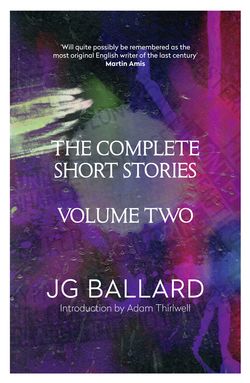Читать книгу The Complete Short Stories: Volume 2 - Adam Thirlwell - Страница 8
3
ОглавлениеOne of Ballard’s greatest stories is called ‘The Voices of Time’. Its manner is not the manner of the usual avant-garde. Its early pages contain dialogue that is notable for its strained formality. (‘“What are you doing with yourself, Robert?” he asked. “Are you still going over to Whitby’s lab?”‘) Judged on its stylistics, the mode seems to be the usual mode of a certain deadbeat realism. (‘He smiled sympathetically at Powers across the desk, wondering what to say to him.’) And yet the reader looking for the usual story and backstory will soon find the conventional fictional perspectives subtly altered. Some names are strange – like Kaldren, and Coma. While the backstory that is hinted at – and this is one of Ballard’s constant techniques – is vast with inexplicability: not just isolated details (‘the derelict gold-panning equipment abandoned over eighty years ago’), but also the blank precision of the vocabulary, the strange ‘camera towers’ and ‘glass polyhedrons’ of this landscape, and the intricacy of the scientific terms, which go way beyond the usual assumptions of a reader’s everyday knowledge: ‘the protein lattices in the genes were building up energy in the way that any vibrating membrane accumulates energy when it resonates …’
It is a future that could also be a present – everything is scrambled – and the reason for this confusion is the meaning of the story. Its surface plot seems to be about the strange discoveries which Whitby, a biologist, has been making in the field of silent gene activation. His colleague, Powers, is dying – and in the time he has left he is trying to think through the implications of Whitby’s experiments, where an organism’s latent future comes to life. And the answer seems to be contained in an odd undertaking of Whitby’s in the summer before his suicide: ‘the strange grooves the biologist had cut, apparently at random, all over the floor of the empty swimming pool. An inch deep and twenty feet long, interlocking to form an elaborate ideogram like a Chinese character Eventually, Powers decides to build a version of Whitby’s diagram, in concrete, in the middle of a salt lake. When it is finished, it is revealed as a ‘mandala’ – a miniature diagram of the universe. And Powers walks out to its centre. ‘Above him he could hear the stars, a million cosmic voices that crowded the sky from one horizon to the next, a true canopy of time.’
For this story’s theme is entropy. And therefore its perspective is not just the entropy of the human body, but also of the dying stars, and the dying planet. Which is why the story’s unwobbling pivot is this strange mandala. As Powers dies, ‘the image of the mandala, like a cosmic clock, remained fixed before his eyes …’
